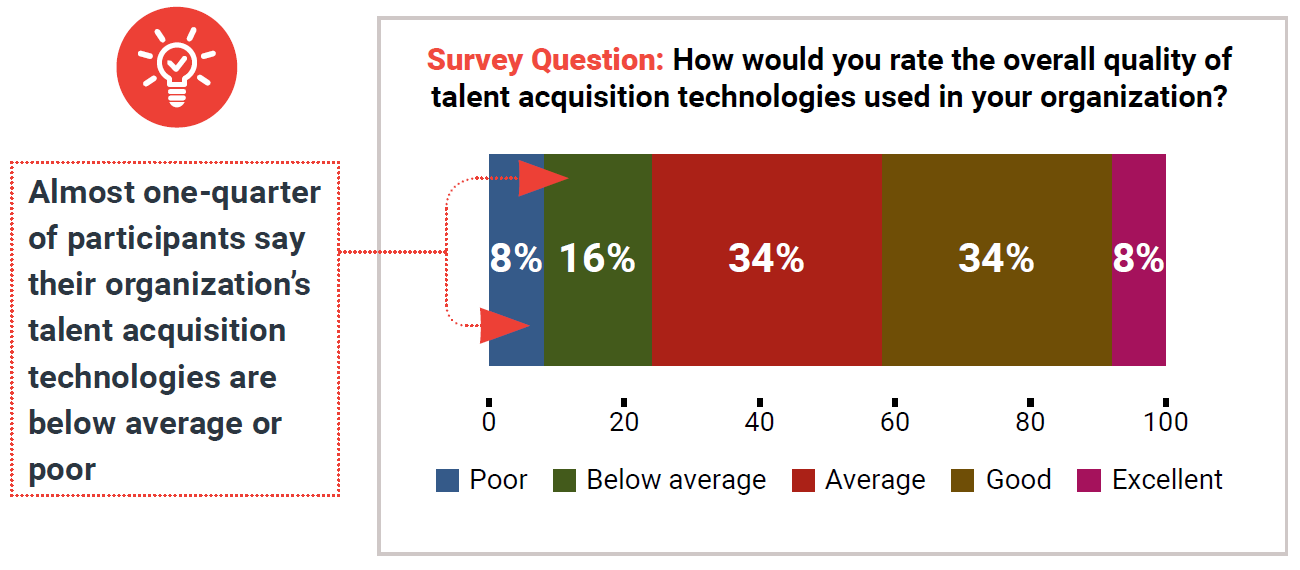How can employers deal with the many challenges related to talent acquisition? One possible answer is to take fuller advantage of the evolving and expanding range of available technologies. To accomplish this, however, organizations must first assess the current state of those technologies.

Fewer than half rate the overall quality of their organization’s talentacquisition- related technologies positively
Given the amount of attention talent acquisition technologies have received in the past decade, one might hope that by now most companies would feel positively about their systems. Unfortunately, that’s not the case. Only 42% of respondents describe their talent acquisition technologies as good or excellent.
There are three main factors that might be causing firms to have a disappointing experience with talent acquisition technologies. First, as we've reported, talent acquisition itself remains a challenging process in an era when TA is a high priority.
Second, talent acquisition processes are complex and best practices will vary from firm to firm. It can be difficult and costly to customize talent acquisition technology that is up to the task and well-integrated with other systems in the organization’s tech stack.
Third, HR might not have the budget to regularly upgrade its technology. The technology may have been state-of-the-art at the time of implementation but then became outdated over time. In a sense, all the advances made in talent acquisition technology can work against HR because they may not have the budget to implement new and helpful tools as they get released.
Impact of organization size
As organizations get larger, talent acquisition technology begins to struggle more. Whereas 47% of small and 44% of mid-sized organizations say their talent acquisition technology is good or excellent, only 38% of large organizations say so. This is presumably a result of the increasing complexity that comes with larger organizational size, which increases the demands on technology.
